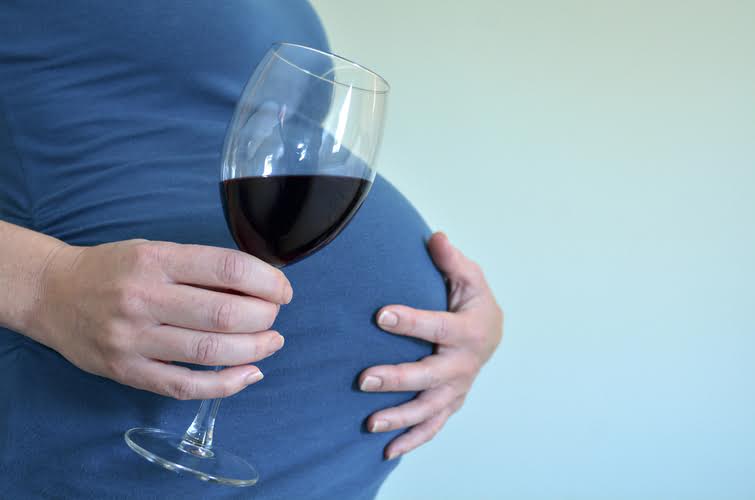According to the researchers, the physical shape and size of their brains resembled that of drug users. Grey matter volume among people addicted to their phones diminished in critical areas, a condition similarly observed in people with a substance use disorder. The American Psychiatric Association does not officially recognize the condition. Still, it is acknowledged as a behavioral addiction by https://www.danielleneil.com/gahanna-engagement-photos/ many medical professionals and researchers worldwide. According to several studies, over time, the devoted use of smartphones can alter and negatively impact an individual much like gambling. Alcohol and drug abuse can worsen the course of a depressive disorder by aggravating the symptoms of depression, increasing the likelihood of hospitalization, and interfering with the course of treatment.
International Patients

Medications also can help deter drinking during times when individuals may be at greater risk of a return to drinking (e.g., divorce, death of a family member). When she returns to complete her doctorate, Armstrong hopes to continue studying the intersection of mental health and addiction, she said. Understanding these complex relationships can help parents, mentors and health care providers better treat teens. Research shows that chronic phone use can increase or decrease GABA production. Disturbances to the GABA system are proven to be a warning sign of addiction.
Negative Effects Of Phone Addiction

Those with moderate to severe alcohol use disorders generally require outside help to stop drinking. This could include detoxification, medical treatment, professional rehab or counseling, and/or self-help group support. However, about 18 http://fc-sochi.com/showthread-t_825-page_9.html million adult Americans have an alcohol use disorder (AUD). For people with alcohol use disorder, it can be very difficult to stop drinking alcohol, even when it negatively affects their relationships, work, or physical and mental health.
- If you are drinking more than that at any one time, you may be misusing alcohol.
- A rehab program that addresses both depression and addiction may help to stop the progression of both disorders and empower the individual to build a healthy, sober life in recovery.
- 1In operant procedures, animals must first perform a certain response (e.g., press a lever) before they receive a stimulus (e.g., a small amount of alcohol).
- For example, if you’re receiving treatment for a condition related to alcohol use, like cirrhosis of the liver, you should ask your healthcare provider about changes in your body that may be new symptoms.
- The behavioral addiction is often dubbed as “nomophobia,” or the fear of being without a mobile device.
- It can have extreme effects on people’s personal and professional lives, even in mild cases.
Phone Addiction: Warning Signs And Treatment
If you think you might have an alcohol problem, discuss it with a healthcare provider. They can offer advice on how to approach your treatment and assist you with the process of detoxing, withdrawing, and recovering from alcohol use disorder. Everyone’s experience with alcohol is different, but effective treatments are available, whether your condition is mild, moderate, or severe.

How to Recognize an Alcohol Dependence (Alcohol Use Disorder)
- Alcohol use disorder can include periods of being drunk (alcohol intoxication) and symptoms of withdrawal.
- Similarly, systemic administration of antagonists that selectively act at the CRF1 receptor also reduced upregulated drinking in dependent mice (Chu et al. 2007) and rats (Funk et al. 2007; Gehlert et al. 2007).
- If you feel you can confide in a friend and gain their support, they may be able to help you with the next stages of your recovery.
- For people with alcohol use disorder, it can be very difficult to stop drinking alcohol, even when it negatively affects their relationships, work, or physical and mental health.
This is alcohol withdrawal, and it causes uncomfortable physical and emotional symptoms. You can visit the NIAAA Rethinking Drinking website to learn more about alcohol use disorder, including what a “standard” drink actually looks like and how much drinking may be costing you in dollars. You can also explore other tools to help you reduce your alcohol consumption. Some healthcare http://www.race-nights.co.uk/BeachNightClubs/night-clubs-in-cocoa-beach-fl professionals may use an older tool to screen for alcohol use disorder called the CAGE Questionnaire. Many people with alcohol problems and their family members find that participating in support groups is an essential part of coping with the disease, preventing or dealing with relapses, and staying sober. Your health care provider or counselor can suggest a support group.

- There are several treatment options available for AUD, and there’s no one-size-fits-all solution.
- Drinking heavily over long periods of time may lead to changes in how the brain functions, from memory slips to more debilitating conditions.
- ” self-assessment below if you think you or someone you love might be struggling with an alcohol use disorder (AUD).
- Further, the amount of work mice (Lopez et al. 2008) and rats (Brown et al. 1998) were willing to expend in order to receive alcohol reinforcement was significantly increased following repeated withdrawal experience.
In severe cases, a person maydevelop delirium tremens, a potentially life-threatening condition that causes hallucinations, confusion, seizures andpsychosis. In this disorder, people can’t stop drinking, even when drinking affects their health, puts their safety at risk and damages their personal relationships. Studies show most people can reduce how much they drink or stop drinking entirely. It has been postulated that naltrexone may blunt the rewarding effects of alcohol, whereas acamprosate may attenuate adaptive changes during abstinence that favor relapse (Heilig and Egli 2006; Litten et al. 2005). In addition to physical signs of withdrawal, a constellation of symptoms contributing to a state of distress and psychological discomfort constitute a significant component of the withdrawal syndrome (Anton and Becker 1995; Roelofs 1985; Schuckit et al. 1998).
- People struggling with depression often feel isolated, profoundly lonely, and powerless.
- A healthcare professional may also be able to recommend resources and support.
- Health professionals sometimes prescribe medications to reduce the symptoms of withdrawal.
- Nearly all risks involved with alcohol addiction may be avoidable or treatable, with successful long-term recovery.
- If alcohol is interfering with your health or your personal, financial, or professional life, consider quitting.

